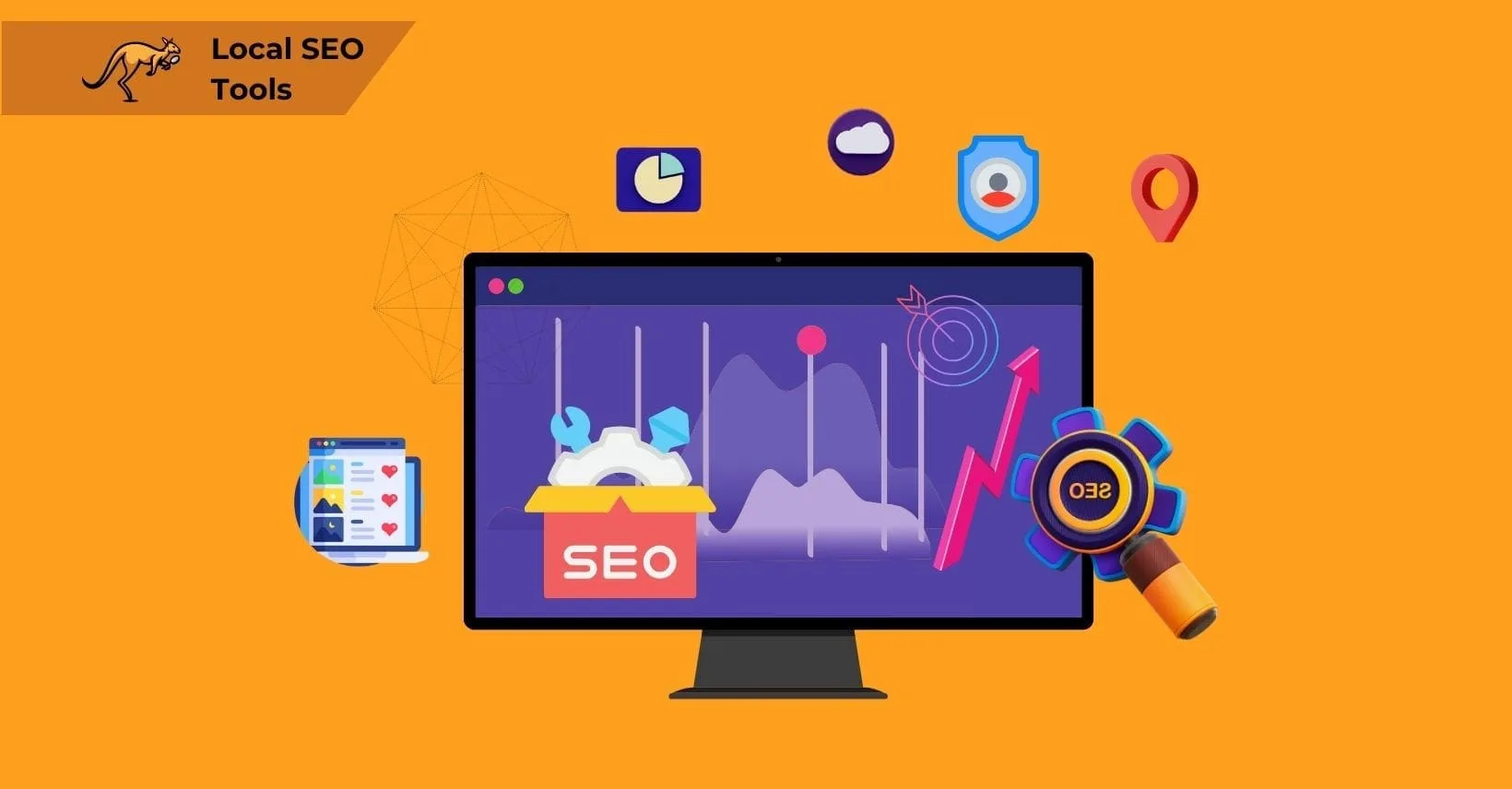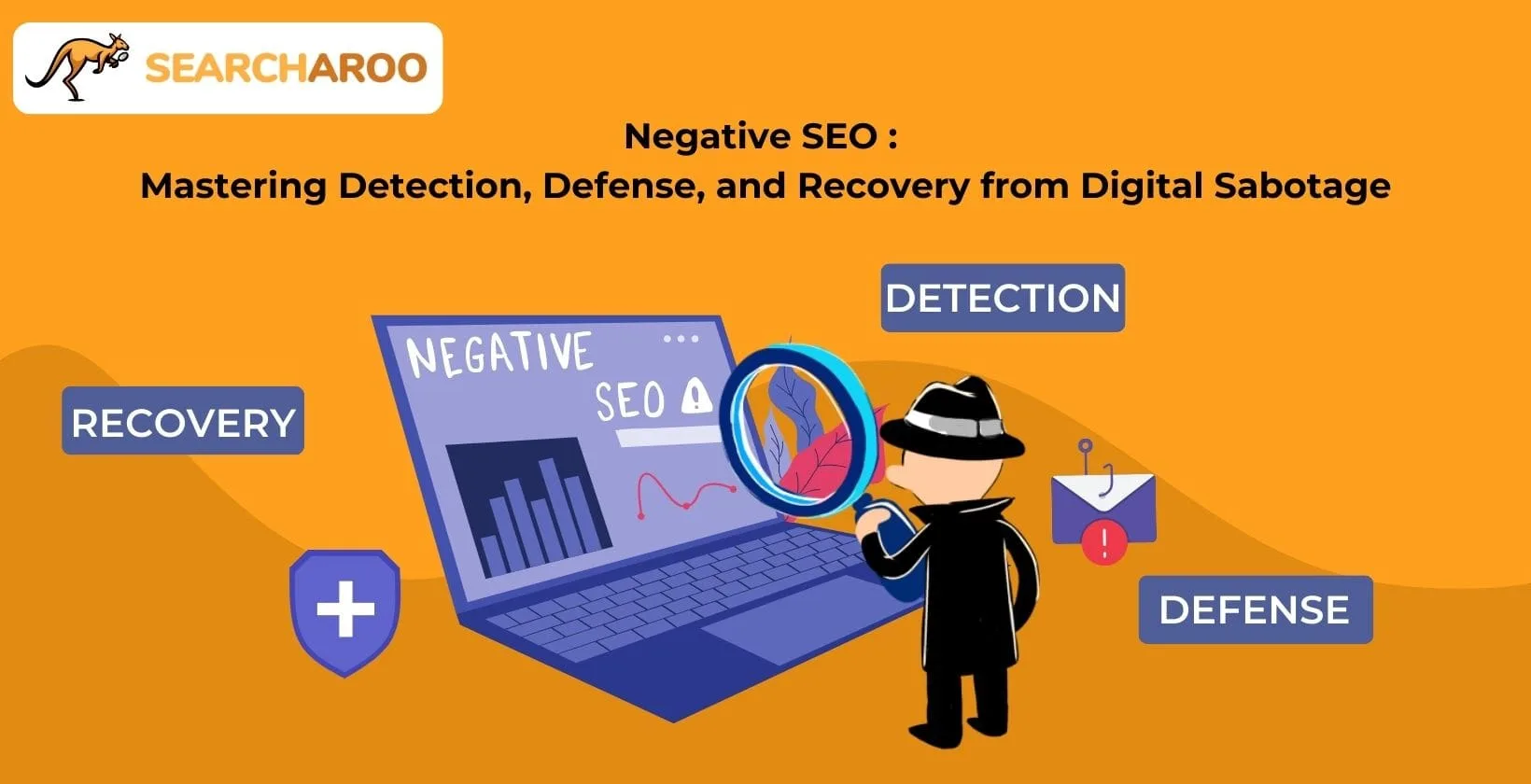Search engine optimization (SEO) can be daunting due to its complexity.
Even at a fundamental level, there are numerous techniques and a variety of tools available that a business might consider, making SEO appear extremely complex.
Local SEO is crucial for any local business relying heavily on the local market for customers. The most effective local SEO software options available include Semrush, BrightLocal, Moz Local, and Google Business Profile, which offer comprehensive features for managing online presence, tracking local search performance, and automating listing management across multiple directories..
For many local businesses, selecting the appropriate SEO tools is essential for success in their local markets.
Choosing the right local SEO tools involves assessing which features align with your specific business goals, budget constraints, and technical capabilities. Businesses should evaluate tools based on their ability to manage listings, track rankings, analyze competitors, and optimize content before making investment decisions..
With the proper tools in place, local businesses can automate local SEO processes through scheduled content updates, synchronized business listings, and automated performance alerts, allowing them to focus more effectively on connecting with local customers.
This naturally leads us into a discussion on how to thoughtfully select these tools to maximize your local engagement and visibility.
How to Choose Local SEO Tools

Selecting the right local SEO tools is crucial for any business aiming to improve its online presence.
Each tool offers distinct advantages, and it’s important to choose ones that align with your specific needs, whether they supplement your existing strategies or remedy any shortcomings.
These tools are important, from generating detailed reports across multiple locations to providing targeted local keyword suggestions. They also help manage your reputation and track citations, giving you a competitive edge.
By strategically incorporating these tools into your marketing efforts, you lay the groundwork for expanded visibility, including subtle shifts towards broader advertising strategies on search engines.
Advertising on Search Engines
SE Ranking
SE Ranking is an accessible and budget-friendly tool, ideal for local businesses starting their SEO efforts.
It provides essential features like content marketing support and competitive analysis without the complexity of more advanced tools.
For beginners, SE Ranking offers extensive guides that simplify the learning curve for local SEO tactics.
The platform allows users to tailor custom dashboards, which is critical for effectively monitoring SEO outcomes and business metrics.
What sets SE Ranking apart is its ability to track local SEO results on a city-by-city basis, offering precise data that can be crucial for regional marketing strategies.
Priced between $30 to $150 monthly, SE Ranking presents a practical choice for local businesses new to SEO. Local SEO tools vary widely in cost, with basic options like Google Business Profile available for free, mid-range solutions like BrightLocal starting around $29 monthly, and comprehensive platforms like Semrush and Yext ranging from $99 to several hundred dollars per month depending on required features and business scale. Local SEO tools vary widely in cost, with basic options like Google Business Profile available for free, mid-range solutions like BrightLocal starting around $29 monthly, and comprehensive platforms like Semrush and Yext ranging from $99 to several hundred dollars per month depending on required features and business scale..
While it may not have the breadth of features found in some alternatives, it is a reliable entry point for initiating search marketing campaigns.
As businesses evolve, they often seek more comprehensive tools to offer a wider scope of SEO capabilities and insights akin to those in platforms like Semrush.
Semrush
Semrush, a renowned SEO tool, is also highly favored for local SEO because of its extensive features and fair pricing.
It aids businesses with the management of listings, monitoring of social media profiles, and seamless integration with significant SEO platforms.
Semrush conducts regular automated site audits to identify and address gaps in local search performance. Users can select from a suite of features, with optional add-ons providing additional control over costs.
Although the basic functionalities are accessible in the free version, the comprehensive benefits are unlocked with each paid tier.
For businesses aiming to optimize their visibility on major search platforms, taking steps towards managing their online profiles, such as a Google Business Profile, could naturally complement their existing SEO strategies.
Google Business Profile
Creating a Google Business profile is free and simple to manage, positioning your business effectively on Google for local search visibility.
This essential tool takes minimal time to set up. It provides a platform where your business can remain prominent in local search queries. It utilizes data like positive Google Reviews to enhance your search rankings, expanding your audience reach on Google.
Additionally, updating your profile with relevant business information enhances visibility and facilitates customer interactions. These interactions draw more attention to your business and offer insights into customer behavior online.
Importantly, allowing customers to leave reviews directly on Google adds credibility and trustworthiness compared to external review sites.
Using digital platforms like Bing Places for Business continues to be an integral strategy for broadening your digital footprint.
Bing Places for Business
If reaching a broad audience is your goal, consider creating a Bing Places for Business listing.
Like Google, this service allows businesses to manage their online presence specifically for Bing users. Despite lacking native review capabilities—reviews come from TripAdvisor—maintaining a presence here can still elevate your visibility in local search results.
The process involves uploading essential business details and location information, which helps attract your targeted customer base.
Like on Google, features such as business data upload are available on Bing, which supports crafting a focused local search strategy.
Although the absence of integrated reviews might seem less advantageous, managing them through this platform remains straightforward.
Creating a well-crafted page on Bing Places could position your business at the forefront of local searches, making it a wise choice for any business aiming to increase its online footprint.
For businesses seeking further expansion in online visibility, Google Local Services Ads present another strategic avenue to explore, seamlessly extending your reach into the vast Google ecosystem.
Google Local Services Ads
Google’s local services ads are designed to enhance local visibility for service industry businesses. These ads, featuring trust markers and guarantees, are effective tools for increasing leads and customer acquisition.
Combined with Google My Business and a well-maintained Google Business Profile, they can significantly elevate your search results rankings with minimal effort.
However, this paid service allows you to manage your spending according to your budget. Costs per lead can range from $5 to over $150, influenced by the lead type and your business’s scale.
Although important for visibility, small businesses should manage their investment wisely to avoid overspending.
Focusing on cost-effective strategies and tools is essential as we look into optimizing content for better performance and engagement.
Optimizing Content
Wix
Wix offers a user-friendly platform ideal for quickly setting up websites, with free options for personal projects and affordable plans for e-commerce and business use.
If you’re considering switching platforms or starting a new website, Wix is a practical choice. Its website builder is straightforward, making it easier for beginners to create their websites.
This simplicity benefits small businesses needing to establish or update their websites.
The platform includes tools like the SEO Wiz system and the SEO Site Booster, particularly useful in the more expensive plans to enhance local SEO.
Even the free version helps assemble a site and master the basics of website construction.
While it doesn’t allow for custom domains in the free tier, upgrading is always an option once your site is set up to ensure visibility in local search results.
Wix offers cost-effective plans and integrated SEO tools that gradually enhance your business’s online presence.
Speaking of enhancing online visibility, another tool that excels in optimizing websites is Yoast, which similarly boosts your site’s search engine ranking.
Yoast
Yoast SEO is a plugin that enhances business content using platforms like Shopify or WordPress. It offers immediate feedback on how well your page uses keywords.
This feedback is clear, helping you understand and apply the necessary changes. Yoast is available in both free and paid versions, with the free version covering many practical SEO needs without cost.
It delivers technical advice and on-page tips, making it a useful tool for improving local search rankings.
While it doesn’t cover every feature in the free version, it’s vital to know which aspects are included and which are not. As we consider various SEO tools, MobileMoxie emerges as another significant option, bridging different facets of mobile optimization.
MobileMoxie
MobileMoxie is a user experience testing tool pivotal in revealing how visitors interact with your website.
It pinpoints whether people leave due to the design, layout, or content, especially on pages that appear in local search results.
Understanding user behavior on your site is crucial, yet it’s often neglected in local SEO strategies. Without engagement, even the most robust local SEO efforts falter.
This tool operates independently of major search engines, allowing unbiased analysis across different markets.
While the free version offers basic insights, upgrading to the paid version provides deeper analysis and additional features. However, the highest tier comes with more comprehensive tools.
MobileMoxie identifies technical SEO issues and enhances your understanding of how your content holds visitors’ attention.
As you refine these elements, consider the impact of keyword relevance and content effectiveness, much like Dashword might evaluate.
Dashword
Dashword is an AI tool rooted in natural language processing that accelerates content creation.
While it isn’t ideal for every scenario, its primary function is to expedite the production of content briefs and stimulate new article concepts that resonate with your existing content’s theme and objectives.
As a content analysis tool, Dashword enables you to dissect top-performing articles to adopt successful strategies for your writing. It excels in crafting briefs and SOP documents, establishing itself as an indispensable resource for local search content creation.
Though relying solely on AI poses risks like penalties for AI-generated spam or issues with content duplication, when used judiciously, Dashword enhances your SEO toolkit by supporting rapid content development and analysis.
Through these tools, a thorough understanding of the competitive landscape naturally sets the stage for optimizing your strategies, such as focusing on keywords that capture audience interest.
Keyword Research and Competitor Analysis
SpyFu
SpyFu stands out as a free SEO tool that analyzes competitor strategies to enhance your local search efforts. It provides a wide array of features, including viewing competitors’ ad histories and leveraging a vast repository of historical data, making it a useful resource for businesses in competitive sectors.
While it requires some time to master and lacks some functionalities offered by platforms like Semrush, SpyFu excels within its scope, particularly with its emphasis on US and UK data. It often emerges as a superior option in its free version compared to other local SEO tools, especially when cost is considered.
As you consider these tools, exploring similar functionalities in SEOQuake could provide further insights into effective competitor analysis.
SEOQuake
SEOQuake, integrated with a Semrush plan, functions as a local SEO tool nested within another set of tools.
This integration is strategic as it taps directly into Semrush’s capabilities, offering immediate insights via a Google Chrome extension.
This feature set is beneficial for swiftly enhancing local search results, providing key data on keyword effectiveness and page metadata.
This tool excels in competitor analysis and understanding market peers, extending its utility to monitor backlinks and traffic without switching tools.
Its primary limitation stems from its reliance on Semrush and Google Chrome, necessitating access to both; yet, its ease of installation and no-cost nature facilitate its integration into your SEO strategy.
This seamless data gathering makes it a critical first step before going deeper into research tools that provide expansive keyword and competitor insights.
Keywords Everywhere
Keywords Everywhere, available as a free or pay-as-you-go Chrome extension, collects extensive keyword data. This tool simplifies keyword research directly on search pages, enabling users to identify various keyword variations.
It’s especially useful for understanding what keywords competitors might be utilizing. With its country-specific filters, the extension enhances local SEO strategies by pinpointing ways to boost local search rankings.
The user-friendly extension connects seamlessly to various platforms through an API key and specific page URLs, including Amazon and eBay.
While the free version offers ample features for smaller businesses, the paid version provides expanded data access.
This includes detailed insights into search volumes and keyword trends, which are essential for extensive keyword research projects.
While focusing on keywords is crucial, the broader scope of off-page SEO strategies also plays a vital role in enhancing a site’s visibility and authority across the web.
Off-Page SEO
Podium
Podium automates review collection, steering customers to leave authentic feedback, which boosts your business’s credibility. Local SEO automation tools like Semrush, Moz Local, and Yext enable businesses to schedule content updates, synchronize business listings across platforms, receive performance alerts, and streamline citation management without manual intervention. Local SEO automation tools like Semrush, Moz Local, and Yext enable businesses to schedule content updates, synchronize business listings across platforms, receive performance alerts, and streamline citation management without manual intervention.
This automation increases your visibility in local searches, which is a key platform goal. Podium, a cloud-based system, tracks and monitors online reviews, enabling you to grasp the content and sentiment of each feedback you receive.
It allows you to prompt customers to leave reviews, analyze overall review performance, and identify reviews awaiting responses.
Additionally, embedding Podium’s reviews on your website can elevate your local search rankings and effectively manage customer opinions.
Although Podium requires a significant initial investment, it is well-suited for well-established businesses focusing on reputation and local search optimization.
As such, businesses thrive on feedback and local discovery, so they might also consider tools like Moz Local to enhance local SEO strategies further.
Moz Local
Moz Local is a top choice for small businesses aiming to enhance their local SEO efforts. It provides a comprehensive dashboard that facilitates the monitoring and interpretation of essential SEO data, both actively and passively.
Users can utilize Moz Local to automatically update and synchronize their business listings, remove duplicate listings, post updates to social media, and track their performance on search engine results pages.
While it lacks features for managing reviews, its main function is to streamline the automation of listings across various locations and platforms, freeing up time for other critical tasks in your local SEO strategy.
The tool also supports automated alerts, distinguishing it from other listing management tools by notifying users of significant updates or when metrics fall below set thresholds.
Although Moz Local does not offer a free trial and lacks review management capabilities, its affordability makes it a viable option for those managing a single location without coordinating multiple branch systems.
As businesses prioritize efficiency in managing their online presence, they often explore additional tools that offer expanded features to enhance visibility and operational control, such as Yext, which broadens the scope of managing digital knowledge across different platforms.
Yext
Yext is a robust tool that optimizes listings accessible through unconventional channels like voice assistant searches and GPS applications. It enables businesses to enhance their listings with a variety of information, such as photos, operating hours, promotions, and delivery specifics.
Additionally, Yext can detect and correct errors across different platforms, ensuring accurate information is always presented, thereby preventing customer confusion and dissatisfaction.
This capability is increasingly vital as the prevalence of voice searches and personal assistant devices rises.
Even at its basic level, Yext aims to ensure accurate listings are distributed to local directories and major platforms like Google My Business, which is essential for any company’s growth.
The main concern with Yext may be its cost, which is relatively higher than some competing tools. However, the decision to invest depends on individual business priorities.
Given the importance of maintaining accurate and comprehensive digital footprints across various channels, tools like Yext prove indispensable.
Similarly, BuzzStream assists with another crucial aspect of digital presence, focusing on building relationships and managing outreach.
BuzzStream
BuzzStream excels in managing backlinks, primarily identifying link-building opportunities and prospecting, making it an ideal tool for businesses eager to improve their backlink profile.
It offers potential outreach options that enable businesses to secure more backlinks and prospect the internet for new strategies to elevate their site’s search engine rankings.
Although it’s straightforward as a backlink tool, BuzzStream provides a 14-day free trial, allowing users to evaluate its effectiveness.
With four pricing tiers, businesses can select an option that matches their current success level.
As businesses assess these tools, they often look to further enhance their strategies by exploring other top-rated platforms, providing a broader range of functionalities to boost their online visibility.
Ranking Tools
BrightLocal
BrightLocal, recognized for its effectiveness in local SEO management, is an invaluable tool for analyzing and displaying statistical data. BrightLocal offers agency-specific features including white-label reporting, client management dashboards, and multi-user access controls. Agencies managing multiple client accounts benefit from tools like Semrush’s Agency Growth Kit and Moz Pro’s multi-seat licenses, which provide scalable solutions for tracking numerous businesses simultaneously while maintaining organized client data.
This tool ingests local SEO data from various sources, helping you identify where your SEO efforts fall short.
Its search grid reporting system highlights the origins of your traffic, clarifying which areas yield strong results and which do not resonate as well in searches.
Particularly useful in areas with dense populations, the tool’s ability to differentiate performance by location can greatly influence customer retention strategies on a micro level.
For as little as $9, BrightLocal enables you to enhance your understanding of local search engine performance, paving the way for tools like Local Falcon to refine your strategic approach further.
BrightLocal offers agency-specific features including white-label reporting, client management dashboards, and multi-user access controls. Agencies managing multiple client accounts benefit from tools like Semrush’s Agency Growth Kit and Moz Pro’s multi-seat licenses, which provide scalable solutions for tracking numerous businesses simultaneously while maintaining organized client data.
Local Falcon
Local Falcon is designed as a budget-friendly tool for monitoring local search engine rankings for businesses with multiple locations. Multi-location businesses can also utilize Moz Local, Yext, and Synup, which provide specialized features for managing listings, tracking performance, and maintaining consistent information across numerous business locations. Multi-location businesses can also utilize Moz Local, Yext, and Synup, which provide specialized features for managing listings, tracking performance, and maintaining consistent information across numerous business locations.
Each branch or office of your business has local search rankings that Local Falcon helps track.
Although it lacks a free plan and offers only a brief trial period, its grid system is excellent for pinpointing the origins of your local search queries.
This feature is useful for determining which areas draw the most interest or which localities frequently trigger your keywords.
Despite offering just a singular service, Local Falcon could be useful for gaining deeper insights into your local search rankings.
Its straightforward approach serves those who need to understand the dynamics of their local online visibility.
As we explore more tools, remember the unique capabilities each one brings to managing different aspects of online presence.
Other Niche Tools
Wix QR Code Generator
Previously highlighted as a top free local SEO tool for website creation and promotion, Wix offers more than just web-building features.
It includes various niche tools, such as a QR code generator. This feature allows the creation of quick response codes, which you can customize with different colors and sizes to meet your needs.
If incorporating QR codes into your local SEO tactics for innovative advertising appeals to you, Wix provides these tools at no cost, with the option to download codes in various formats depending on your requirements.
Looking beyond Wix, another tool that stands out in supporting local businesses in managing their online presence effectively is Synup. This platform extends its services to…
Synup
Local SEO best practices often involve utilizing social media. Synup helps simplify this by tracking your SEO status across various platforms and consolidating the data into one clear dashboard.
You can connect Synup with selected local directories, maintaining consistency in your Google Business Profile and Facebook page through scheduled updates and efficient data management.
Although Synup doesn’t offer a free trial, you can arrange a demonstration through their sales team.
Pricing discussions are also necessary with their sales team, as costs are not publicly disclosed and are likely customized to meet different business requirements.
As managing these details ensures better control over your online presence, it subtly points to the importance of structured data, like schemas, in enhancing visibility and comprehension across search engines.
Merkle
Merkle is a versatile tool designed to enhance schema markup, structure data effectively, and generate XML site maps.
Its primary role is to improve visibility across various search engines by providing local SEO tools—a feature often overlooked by other platforms.
Although more comprehensive local SEO platforms exist, Merkle remains a valuable asset for those without such features, offering a practical alternative for managing local SEO tasks.
This tool also includes technical resources like a SERP simulator, which previews how local SEO listings appear on different search engines, and a mobile site tester, ensuring compatibility across various devices.
Merkle is a free resource and a smart addition to any local SEO toolkit.
Despite its imperfections, the benefits of integrating such tools into your strategy can lead to better-informed decisions, setting the stage for discussing how effective local SEO practices can benefit your online presence.
Enhancing Local Visibility: A Guide to Selecting Local SEO Software
This article highlights the importance of local SEO for businesses reliant on local markets, emphasizing the need to choose the right tools tailored to specific business needs. When selecting local SEO management software, businesses should prioritize tools offering listing management, review monitoring, rank tracking, competitor analysis, citation building, and reporting capabilities. The most effective local SEO platforms provide integration with Google Business Profile, automated data synchronization across directories, and location-specific analytics that measure performance against local competitors.
For beginners, tools like SE Ranking offer budget-friendly features, while more advanced platforms like Semrush provide comprehensive options for managing and monitoring online profiles and local SEO performance.
Establishing a strong local presence is crucial, with Google Business Profile and Bing Places for Business key for visibility in local search queries.
It also points out specialized tools for various SEO needs: Google Local Services Ads boost visibility for service industries, Wix and Yoast aid in website optimization, MobileMoxie and Dashword focus on user experience and content creation, and SpyFu and SEOQuake assist in competitor analysis and keyword research. Strategic selection and use of these tools are vital for enhancing a business’s digital footprint and effectiveness in local markets.
When selecting local SEO management software, businesses should prioritize tools offering listing management, review monitoring, rank tracking, competitor analysis, citation building, and reporting capabilities. The most effective local SEO platforms provide integration with Google Business Profile, automated data synchronization across directories, and location-specific analytics that measure performance against local competitors.
Frequently Asked Questions
Working with local SEO tools can often seem quite complicated at first, especially with the more in-depth SEO software tools out there. However, it is not all that hard to get used to managing your local search rankings – you need to know the basics.
Why is local SEO important?
Local SEO is all about the local search ecosystem – the search results in your general area. This often relies heavily on location data and keyword research into terms that people in your area use since you are trying to attract attention from customers that are generally around your business.
For a business that partially (or only) accepts customers on-site, local competitors can be a huge problem. Local SEO is the best way to get your business in front of the right people at the right time, securing more traffic and users as a whole.
Do I need to focus on local SEO?
Depending on how important local SEO is to your business, you may need to treat it as either a small part of your SEO or a huge element of your business’ success. No company should ever ignore local SEO, but there are some cases where it may not be as relevant.
For example, an international company does not particularly need local citations or local reputation management, and a local rank checker will not help them all that much.
Even if your business operates completely online and has no formal office or site for real-life customers to visit, local SEO software can still help. Most search engines will gravitate towards showing users businesses in their area, and that includes yours.
How do you get started with local SEO?
Local SEO is basically just regular SEO but focused on your area. Whether you are using the Semrush listing management tool or just doing basic rank tracking through Google Analytics, you can often use the same tools you already have in a local capacity.
Of course, if you want to really focus on local SEO opportunities, then using other tools that are specially designed for a local audience can be a good option.
Should you use a traditional SEO tool for local SEO?
There is nothing wrong with using your existing SEO tools and techniques to target local audiences. Local SEO tools differ from traditional SEO tools by focusing specifically on geographical targeting, local business listings, proximity-based search results, and review management. While traditional SEO tools concentrate on website optimization and general keyword rankings, local SEO platforms emphasize Google Maps placement, local pack rankings, citation consistency, and location-specific keyword performance that drives foot traffic to physical business locations.
Local SEO tools differ from traditional SEO tools by focusing specifically on geographical targeting, local business listings, proximity-based search results, and review management. While traditional SEO tools concentrate on website optimization and general keyword rankings, local SEO platforms emphasize Google Maps placement, local pack rankings, citation consistency, and location-specific keyword performance that drives foot traffic to physical business locations.
How important are my local search rankings?
In general, you want to rank high in as many relevant contexts as possible, and this includes with local audiences as a whole.
Using a local rank tracker can be important if you are targeting a local audience. Make sure you understand how successful your business is locally, especially if that is where a huge part of your traffic comes from.
What are local citations?
In searches, local citations are the details that platforms like Google My Business present. For example, if somebody looks your business up and your Google My Business data appears, that Google My Business data includes citations.
These can be an important part of reputation management. While most customers will not be using any kind of local citation finder, their Google search results will still be influenced by that data.
Is domain authority important?
Domain authority matters for link building, which can directly influence your position in Google search results. It is a measurement of how good a link is most likely going to be for your website.
Should local SEO include social media?
Social media platforms can be important for local SEO. A good social media site gives you a lot of space to work with, letting you create social media posts that draw in traffic and contribute to your SEO at least slightly.
Of course, most social media sites are designed to prevent users from easily leeching links off them. Even so, social media can become another kind of local citation finder, helping users find your business if they otherwise would not.
Does social media influence local SEO results?
Social media sites can sometimes impact your position in search results. While the social media platforms are often self-contained, many of them can have very minor impacts on critical SEO metrics.
While they might not make a major difference to your rank-tracking results at first, having an active presence on social media accounts can still boost your position and help you acquire more traffic in the future.
How can local businesses get started with local SEO tool choices?
There are countless tools to choose from for local SEO, and the easiest option is to use common sense by targeting your weakest points.
For example: Struggling to retain users due to a poor site design? Hire a web design agency. Finding it hard to tell where traffic is coming from? Use tools that can track this information. Common sense can go a long way in the world of SEO.
Is local SEO hard?
While most SEO is tough, local SEO can be daunting at first. It can seem very complex and hard to manage effectively – at least until you get a few tools in place and manage to streamline a large portion of the tough work.
Is local SEO worth it?
Local SEO is almost always worth it. There are very few situations where you should not be attempting at least some local SEO work in one form or another.
What should I do first for local SEO?
There is no best starting point for local SEO or SEO as a whole. Take your time and explore some of the tools listed in this article, and see what kind of options might be best for your situation.
If you are starting, do not even try to plan an aggressive local SEO campaign if you do not have an understanding of how things work. As long as your business can survive decently well for a while, you can take some time to figure out your best options.
Whatever you plan on doing next, ensure you have at least a general idea of how your business is currently performing. The more you know, the better.






